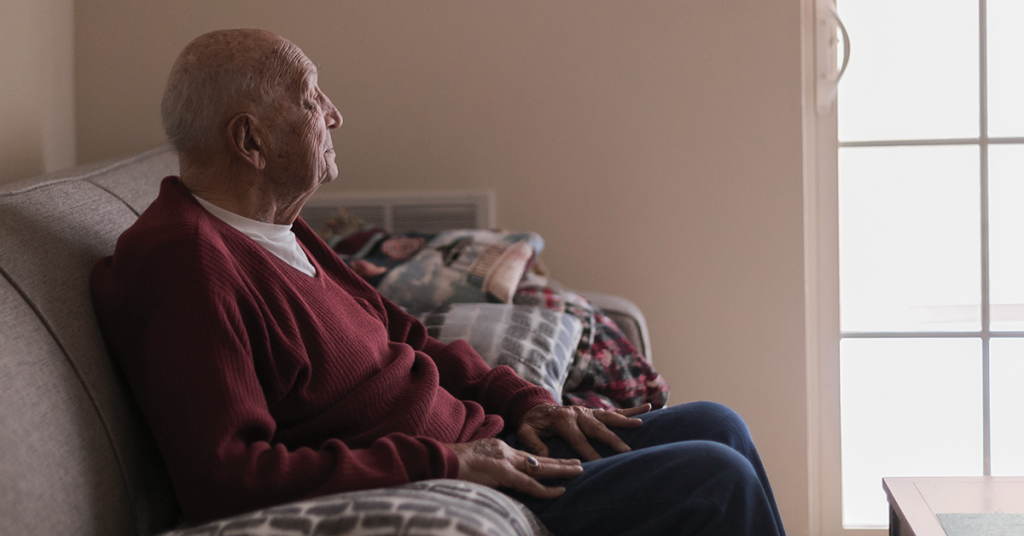Growing older brings wisdom, memories, and new experiences, but it can also come with challenges. One of the most common challenges seniors face is social isolation. While many people think of loneliness as simply an emotional issue, it goes much deeper than that. Social isolation has real effects on the body and overall health. Understanding these effects is important because it can help seniors, families, and caregivers find ways to stay connected and healthy.
What is social isolation
Social isolation happens when a person has very limited contact with others. It can mean living alone with little interaction, or it can also occur when someone feels cut off even if they are surrounded by people. Seniors are more likely to experience isolation due to retirement, health conditions, mobility limitations, or the loss of friends and loved ones. The absence of meaningful social contact can have a significant impact on both emotional well-being and physical health.
The link between isolation and physical health
Researchers have found a strong connection between loneliness and physical health problems. When people feel isolated, their bodies respond in ways that can increase the risk of illness. Stress hormones rise, the immune system becomes weaker, and the body struggles to repair itself as effectively. Over time, this can lead to chronic conditions or make existing health problems worse.
Effects on heart health
One of the most concerning impacts of isolation is on heart health. Seniors who feel lonely or isolated have a higher risk of developing heart disease and high blood pressure. The body reacts to loneliness much like it does to stress, which means the heart is under more strain. This constant strain may cause long-term damage, increasing the chances of heart attacks and strokes.
Impact on the immune system
Social connection plays an important role in keeping the immune system strong. When seniors are socially active, their bodies are better at fighting off infections. On the other hand, isolation weakens this natural defense system, making older adults more vulnerable to colds, flu, and other illnesses. Over time, a weakened immune system can make recovery from sickness slower and more difficult.
Influence on cognitive health
Isolation also has a strong effect on the brain. Seniors who are cut off from social interaction have a higher chance of experiencing memory problems, dementia, and faster cognitive decline. Conversations, shared activities, and mental stimulation from others keep the brain active and healthy. Without these interactions, the mind may become less sharp, and the risk of serious conditions like Alzheimer’s disease increases.
Relationship with physical activity
Staying socially connected often encourages movement and activity. For example, seniors may walk with friends, join a group exercise class, or participate in community events. When someone is isolated, they are more likely to stay indoors and move less. This lack of physical activity can lead to muscle weakness, poor balance, and a higher risk of falls. Over time, inactivity contributes to weight gain, diabetes, and other health issues.
Connection to chronic illness
Studies show that social isolation increases the risk of chronic illnesses such as diabetes, arthritis, and respiratory problems. These conditions are already common in older age, but loneliness makes managing them more difficult. Without support from friends or family, seniors may also struggle to keep up with doctor’s visits, medication schedules, and healthy routines.
The emotional toll that affects the body
While loneliness is often seen as an emotional issue, it directly influences the body too. Feelings of sadness, stress, or hopelessness can lead to poor sleep, low energy, and loss of appetite. Over time, this emotional strain weakens the body’s resilience. Depression, which often grows from isolation, is also linked to physical conditions such as heart disease and stroke.
Why staying connected matters
Staying socially active is not just about avoiding loneliness; it is a powerful form of preventive health care. Strong social connections provide encouragement, motivation, and emotional support that help keep seniors healthy. A simple phone call, a shared meal, or joining a community group can make a big difference in both mental and physical well-being.
Ways to reduce isolation
While some barriers to connection are outside of one’s control, there are still many ways to reduce isolation. Seniors can stay in touch with loved ones through regular visits, phone calls, or video chats. Local community centers often offer clubs, classes, or events designed for older adults. Volunteering is another meaningful way to connect, as it provides a sense of purpose and opportunities to meet new people. Even small steps toward more interaction can lead to big improvements in health.
The role of family and caregivers
Family members and caregivers play a vital role in helping seniors avoid isolation. Encouraging visits, arranging social activities, and helping with transportation can all make a positive impact. It is also important to check in regularly, not only for emotional comfort but also to make sure physical health needs are being met. A caring support system is one of the strongest defenses against the harmful effects of social isolation.
Embracing new ways to connect
Technology has made staying connected easier than ever before. Seniors can join online groups, take virtual classes, or connect with loved ones through video calls. While learning new technology may feel overwhelming at first, it can open doors to friendships and activities that might otherwise be out of reach. Blending traditional interactions with modern tools provides even more opportunities to stay socially active.
Conclusion
Social isolation is more than just a feeling of being alone; it is a serious risk to physical health. It affects the heart, the immune system, the brain, and overall well-being. For seniors, staying connected is essential to maintaining a healthy and fulfilling life. By reaching out to others, joining community activities, and embracing new ways of communication, older adults can protect both their bodies and their minds. Breaking the silence around social isolation is the first step toward building stronger connections and healthier lives.


